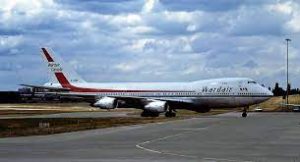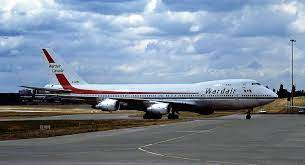The Canadian Airports Council (CAC) has issued a statement calling for the removal of vaccine requirements for air passengers and aviation employees. While many countries have already dropped the travel restrictions back to a pre-pandemic status, Canada still requires a COVID-19 vaccination certificate, among other requirements. Is this impacting the recovery? Let’s find out.
To mitigate the impact of the COVID-19 pandemic, the Canadian government imposed a vaccine mandate in October 2021. It requires every passenger and airline crew member to be fully vaccinated and have a certification to prove it. This is a measure taken by many governments worldwide.
Nonetheless, several countries have dropped their vaccine requirements in the last few months, fully opening their borders. For example, looking at European countries, the UK, Ireland, Iceland, Norway, Sweden, Denmark, and Italy have dropped their requirements.

But Canada’s airports are now calling for the removal of vaccine requirements for air passengers and aviation employees. In a statement, CAC said,
“The aviation community has been a supportive partner of the federal government in facilitating the vaccine mandate for travel since October 2021.
“However, today, all Canadian provinces have removed vaccine restrictions, so there is now a different standard for aviation employees and transportation than for other Canadians.
Aviation is global. In order to support this industry’s economic recovery and compete globally, Canada must align with the international community and join the list of over 50 countries that have already removed vaccine mandates and COVID protocols for travel.”
As of June 7, 2022, Canada has five travel regulations, according to the International Air Transport Association’s (IATA) Travel Centre. In a nutshell, the Canadian government requires:
Passengers and airline crew must have a COVID-19 vaccination certificate uploaded in ArriveCAN. Vaccines accepted are AstraZeneca, Covaxin, Covovax, Janssen, Medicago Covifenz, Moderna, Novavax, Pfizer-BioNTech, Sinopharm, or Sinovac.
Passengers must have a negative molecular COVID-19 test taken outside of Canada at most 72 hours before departure. Or a negative COVID-19 antigen test taken at most one day before departure.
Both passengers and airline crew must submit their information electronically, at most 72 hours before arrival, through the ArriveCAN app or the website.
Passengers could be subject to a COVID-19 molecular test upon arrival.
Passengers could be subject to quarantine for 14 days.
In March, Canadian carriers (such as Air Canada, WestJet, Air Transat, Swoop, and more) flew 4.2 million passengers on scheduled and charter services. The airlines recovered to 55.2% of the pre-pandemic level reported in March 2019.
Operating revenue earned by Level I carriers (which includes the six largest) totaled $1.4 billion in March, almost two-thirds (65.0%) of the $2.2 billion earned in the same month in 2019, pre-pandemic.
According to the Canadian government, with the further easing of restrictions, there are indications that the volume of air passengers will continue to grow. For example, according to the indicator of international arrivals to Canada, April saw significant year-over-year increases in the number of non-resident visitors and Canadians returning from abroad arriving at Canadian airports.


